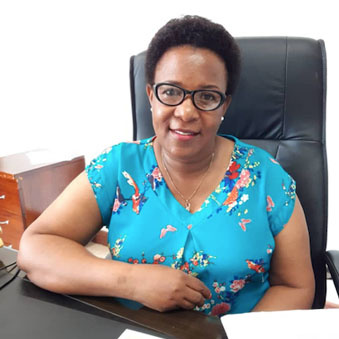About SoAF

The School of Aquatic Sciences and Fisheries Technology (SoAF) is a newly established school at the University that strives for “Enhanced quality outputs in teaching, research and public services” through addressing the following gaps:
- Inadequate training and research in basic freshwater sciences as well as in applied sciences and technology especially in production and processing lines for both marine and freshwater resources.
- General lack of high-level manpower to operate and maintain machinery, harness and develop technology and systems in the shipping, fishing and aquaculture industry.
- The field lacks adequate professionals in aquaculture production and processing technologies, aquatic environmental health, biotechnology, bioprospecting, maritime engineering, aquaculture and fisheries engineering, marketing, business and governance.
- Due to depletion of fisheries resources in shallow coastal waters, Tanzania ought to venture into deeper waters and exploit resources in the Economic Exclusive Zone (EEZ), the undertaking that requires specialized skills and expertise.
- In general, the country requires well trained experts that can unpack the concept of Blue Economy beyond conservation to realize the socio-economic benefits associated with the aquatic environment.
SoAF operates from Mwalimu Julius K. Nyerere Mlimani Campus with it’s headquarter located at Kunduchi Campus.
SoAF Academic Programmes
Training puts emphasis in the areas pertaining to postharvest technologies, processing, value addition, biotechnology, nanotechnology and innovation in aqua-technologies. Specifically training will equip the graduates in the following fields:
- Fisheries Technologies.
- Aquaculture
- Climate change studies.
- Post-harvest technologies especially value addition and marketing of fisheries products
- Quality seed and feed technologies.
Entry Requirement for undergraduate programmes
Generally the admission will follow the Tanzania Commission of Universities (TCU) guidelines. Direct entry admission into these programmes will be based on possession of at least two “A level” passes at a D grade from relevant subjects. These programmes will also admit candidates with 1st or 2nd class Diploma in an appropriate field of Science from recognized institutions within and outside the country.
SoAF Public Services
The School also carries out Outreach activities and Offers Consultancy Services in Fisheries and Aquaculture, value addition of fisheries products, Aquatic Ecosystems Conservation and management. The School also conducts short courses of the above.
Staff and Facilities
SoAF has the necessary teaching and technical staff in various academic areas. Also, the School has adequate physical (land, laboratories, workshops, lecture rooms, seminar rooms and conference rooms) and various equipment.
Career Opportunities
Graduate from the School can be employed by various Academic Institutions, Research Institutes, public and private sectors, NGOs and self-employment.
Self-Employment
Opportunities are available in the Aquaculture Industry (eg. Fish culture, Shellfish culture, Seaweed culture, Ornamental Fish Culture), Fish Trade Food, Processing and Seed production etc.
Dr. Blandina Robert Lugendo
Dean - School of Aquatic Sciences and Fisheries Technology (SoAF)

